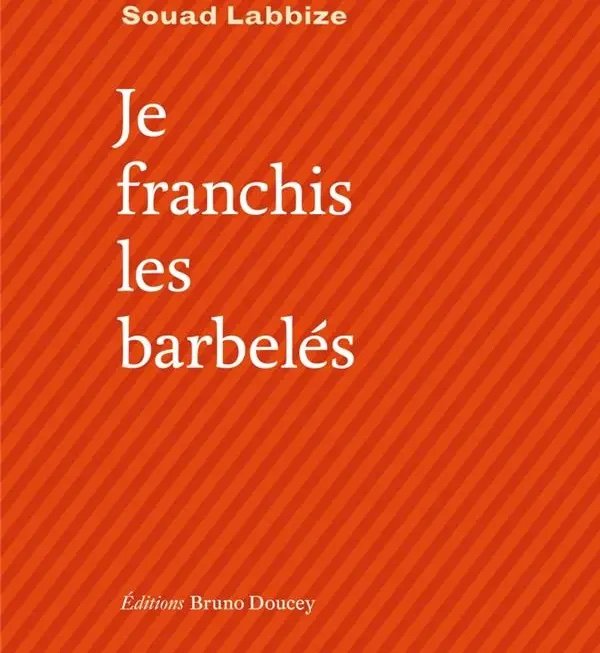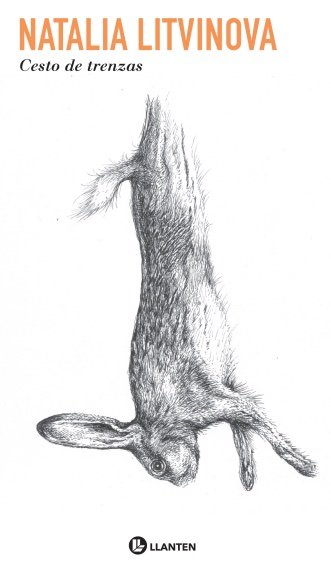60 for 60: The Sexual Benefits of Upright Walking
From the Spring of 1997 comes Matthew Brogan’s poem “The Sexual Benefits of Upright Walking” about the body, its functions, and the very substance with which we proceed. Likening the body to a vessel and that vessel to its functions, Brogan’s piece from the twenty-eighth issue of Columbia Journal is about intention, the desire to understand, and the wherewithal to continue forward. Using language to denote the way we progressed throughout history, from tails to four legs to two legs to a straight spine, Brogan masterfully relays the journey we’ve begun and perhaps are still on.
Poetry Excerpts from Bindle of Exile by Souad Labbize
Don’t count on
my small balcony
in this humid weather
60 for 60: Agreement
Published in the thirty-fourth issue of Columbia Journal, “Agreement” by poet Kay Ryan is as deceptive as it is delicious. Ryan’s ease with sound and rhythm lulls the reader into first considering the poem as simple as a piece of candy. Form reflects content, heightening the impact of what is being said; the em dash dramatizes “sugar,” the unusual break on “the” in the fourth line demonstrates a structural melting, and “granular” evolving into “syrup” in the same line embodies the physical transformation. The ultimate line, set alone as it is, comes as a shock. While flat-toned and truthful, it functions as a wry accusation that opens multiple lines of inquiry. Does agreement seduce? Is agreement a concession, or could it be a moral choice? If “many prefer it,” what is implied about those who don’t? Given the time of the poem’s publishing in 2001, I can’t help but wonder if the political atmosphere following the 9/11 attacks influenced Ryan’s writing. Regardless, these eight distilled lines remain provocative.
One Poem by Gala Mukomolova
Why do immigrants love America
so much? Tennessee asks, who
took his name from his homeland.
Excerpts from Pedro Carmona-Alvarez’s Inventarium
There was the sea, we had finally arrived
at its beach covered in rushes, so much wind
where we stood, we watched a sea eagle
60 for 60: The Poet’s Task
I love Alfred Corn’s translation of Pablo Neruda’s “The Poet’s Task” from Spanish to English, which was published in the twelfth issue of Columbia Journal in 1987.
5 Poems from Basket of Braids by Natalia Litvinova
with a man
on the other side of the forest
is to live out the mystery,
60 for 60: Shore Leavings
One amazing thing about poetry is that it doesn’t have to make sense. Many of us spend our days working toward clarity, in our communications with one another, in our work, and we require it from most things we consume, be it the news or a podcast. Poetry exists in a space outside of this requirement. How liberatory!
60 for 60: evening and my dead once husband
I’ve always been tickled pink by the thought of séances. To call back the dead and learn what they have to tell us: what a marvelous thing, and what a frightening one. I’ve never participated in a séance, and I’m not really planning to: but it has been very funny seeing memes over the past (almost) two years proclaiming that Zoom meetings are our era’s séances.
60 for 60: Before the Burbank Reunion
In a few weeks, I will return to my childhood home for Thanksgiving. It will be the first time in years. The holiday is, despite its colonial underpinnings, a favorite of mine largely because I can’t think of another day when anyone can get away with having four to six kinds of pie for dessert. Still, this year, I have an inexplicable knot in my stomach whenever I consider my imminent return.
60 for 60: Iron Hans
As much of pop culture has been reminding us for a while now, fairy tales are quite a bit more irksome than Disney would have us suppose. And it is right that it be so. Disney’s The Little Mermaid remains an excellent piece of entertainment. But there’s something deeper and more moving in the original story’s tragic ending. Disney’s Cinderella is still enchanting; but when the Grimms’ wicked stepsisters’ eyes are pecked out by doves, there’s a satisfaction that is more than malice. Fairy tales ought to be ghastly: they are our myths, and no one likes an insipid demigod. And what better time to value one’s thirst for the gory than at the season of Halloween? (Or Hallowe’en, if you like.)
I Speak From the Deep End of Night: A Cento
after Alejandra Pizarnik (1936 –1972), Forugh Farrokhzad (1934 – 1967), Sylvia Plath (1932 –1963) & Theresa Hak Kyung Cha (1951 – 1982)
60 for 60: DEER DANCE/FOR YOUR RETURN
Here in Morningside Heights, we have decidedly entered the season of autumn. The days are becoming shorter and cooler, and foliage is beginning to blush—estival abundance is slowly shifting toward winter’s decay. While some are celebrating the season of pumpkin spice, others—or perhaps, just me—spend this time ruing the loss of summer, as if it weren’t something that happened every year. That was, until I read a certain poem.
Two Poems by Deema K. Shehab
Secondhand wrinkles on forehead, she applies kohl in the sun,
eyebrows frown, but then a reprieve: ahh ahh the sun.
2 Poems from Investigation Continues
They are crossroads
welcoming traffic coming from all directions
but they aren’t destinations themselves.
60 for 60: Punctual Poem about Dusk
It’s now fall and October—which means that the ghoulish among us can at last revel in the twilight of the year. It’s quite a beautiful season and month: there’s a nobility and a grandeur to this time of the year. Before we settle into ghost mode, though, we ought to pay homage to the fading grandeur of summer. The thought of a summer evening might help us do so, and that thought might lead to excellent poetry.
2 Poems from Woman Submersed
from so much water on the floor, the trail from bathroom to bedroom
that’s how a woman knows
another woman – knows if she’s washed her hair
60 for 60: Breath
I’m Zak, a second-year poetry concentrator and this year’s archivist for the Columbia Journal. In celebration of our sixtieth issue, I will be leading various archival projects, and I’m pleased to kick off “60 for 60,” where we’ll publish sixty of our favorite archival pieces over the course of the year.

















































